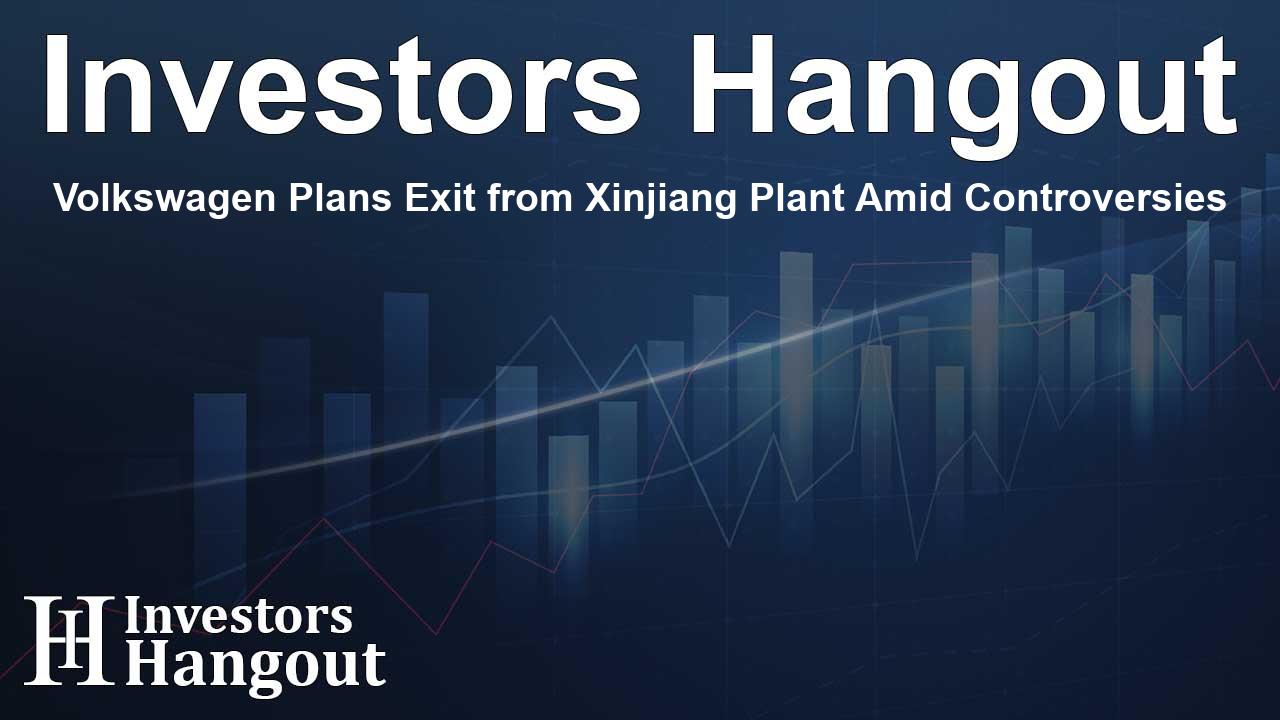Volkswagen Plans Exit from Xinjiang Plant Amid Controversies

Volkswagen's Strategic Decision in Xinjiang
Volkswagen is making headlines with its recent decision to exit its plant in Xinjiang, China. This change comes after the German car manufacturer reached an agreement to sell its operations in the controversial region, a move that has been long anticipated by many in the industry.
Details of the Sale
According to sources familiar with the situation, Volkswagen plans to transfer its Xinjiang assets to Shanghai Motor Vehicle Inspection Certification (SMVIC), which is a subsidiary of the state-owned Shanghai Lingang Development Group. While the specifics of the transaction's financial aspects remain undisclosed, the decision underscores a significant shift for Volkswagen in light of recent events.
Concerns Surrounding Xinjiang Operations
The company's presence in Xinjiang has faced scrutiny due to reports from various human rights organizations documenting alleged abuses, including mass forced labor in detention facilities. Despite these accusations, the Chinese government refutes any allegations of wrongdoing. This situation has led Volkswagen to reassess its investments in the region, recognizing the growing global concerns surrounding human rights.
Impact on Volkswagen's Future Ventures
As part of the transition, SMVIC will not only acquire the plant but also take control of the test tracks located in both Turpan Xinjiang and Anting in Shanghai. Following these changes, Volkswagen will completely sever its operational ties to Xinjiang. Nevertheless, the company is set to reinforce its partnership with SAIC, extending their collaboration until 2040. This strategic alliance aims to innovate by launching an impressive lineup of 18 new models by 2030.
Industry Reactions and Future Considerations
While details regarding this transition have yet to be made public, SAIC has indicated that its joint venture with Volkswagen will issue a statement outlining further plans. VW has also acknowledged it is deliberating with SAIC about future business activities in Xinjiang and is evaluating various scenarios moving forward.
As this situation unfolds, it will be interesting to observe how Volkswagen adapts to the changing landscape and navigates its commitments within China, especially given its renewed focus on human rights and ethical considerations in its operations.
Frequently Asked Questions
What prompted Volkswagen to sell its Xinjiang plant?
The decision was influenced by increasing scrutiny and concerns regarding human rights abuses in the region.
Who is acquiring the Volkswagen plant in Xinjiang?
Shanghai Motor Vehicle Inspection Certification (SMVIC) will purchase the plant under a deal with Volkswagen.
What will happen to the existing Volkswagen operations in Xinjiang?
Volkswagen will completely exit Xinjiang, transferring all its operations and assets to SMVIC.
How long will Volkswagen's partnership with SAIC continue?
The partnership has been extended to 2040, focusing on developing new vehicle models.
What new developments can be expected from Volkswagen in the future?
Volkswagen plans to introduce 18 new models by 2030 as part of its revamped strategy with SAIC.
About Investors Hangout
Investors Hangout is a leading online stock forum for financial discussion and learning, offering a wide range of free tools and resources. It draws in traders of all levels, who exchange market knowledge, investigate trading tactics, and keep an eye on industry developments in real time. Featuring financial articles, stock message boards, quotes, charts, company profiles, and live news updates. Through cooperative learning and a wealth of informational resources, it helps users from novices creating their first portfolios to experts honing their techniques. Join Investors Hangout today: https://investorshangout.com/
Disclaimer: The content of this article is solely for general informational purposes only; it does not represent legal, financial, or investment advice. Investors Hangout does not offer financial advice; the author is not a licensed financial advisor. Consult a qualified advisor before making any financial or investment decisions based on this article. The author's interpretation of publicly available data shapes the opinions presented here; as a result, they should not be taken as advice to purchase, sell, or hold any securities mentioned or any other investments. The author does not guarantee the accuracy, completeness, or timeliness of any material, providing it "as is." Information and market conditions may change; past performance is not indicative of future outcomes. If any of the material offered here is inaccurate, please contact us for corrections.